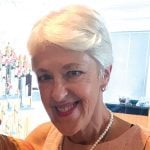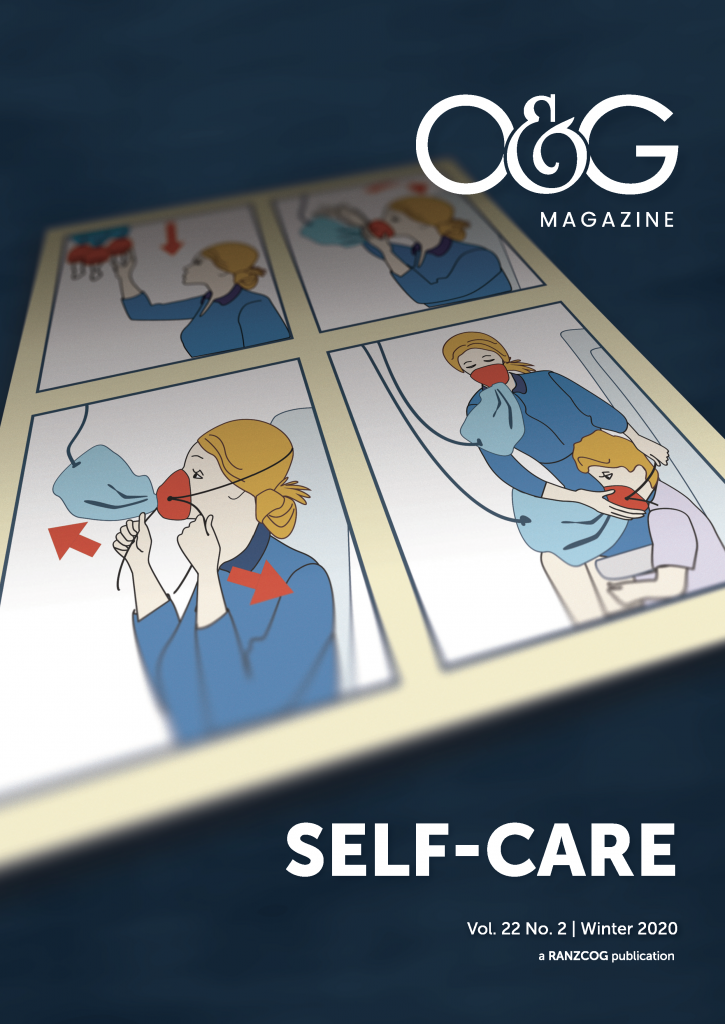As doctors, we approach the possible end of our career as an obstetrician, gynaecologist or GP specialist with a range of emotions. For some, pleasant anticipation, but for others, uncertainty about what will fill the 40, 50 or more hours that are currently taken up with work. For some, the idea of this transition is unthinkable and plans are postponed to a dimly envisaged future. The demands of a career in obstetrics and gynaecology, often combined with family responsibilities, are such that for many of us, there has been limited time to develop other interests that can be a new focus.
As the possibility of leaving one’s current career approaches, one of the most important aspects of this time of life is developing a new identity. For most of us, our career means that we are the highly regarded expert, respected by our patients and enjoying the social status that is part of our work. We may have skills that few others possess, or fill important and highly-valued roles in our hospitals. Who will we be if we are no longer in that role? Personal circumstances meant that I had to consider these questions myself in recent years.
Early in my specialist career, I had a naïve and hazy idea that I would work until I was in my mid-50s, then retire to study, travel and do other things that work did not permit. But mid-50s saw me as a busy clinician and clinical director in a tertiary hospital. It was a very satisfying position that I enjoyed, with colleagues that I valued. I felt that I had experience and expertise that was useful for my patients. I loved working with and mentoring our trainees. And I readily confess that I enjoyed the status of that role.
However, six months of chemotherapy for chronic lymphocytic leukaemia meant that the future was a bit less certain and required serious consideration. I had never taken more than three weeks leave, except after babies, so I had a lot of long service leave available. I decided to take six months off and start a full-time course at Melbourne university, studying horticulture. I approached this with some trepidation and was prepared to return to my career if I did not enjoy study.
Returning to full-time study was a surprisingly challenging experience. It was much more time consuming than I expected, possibly because I was, according to my adult children, a ‘typical mature-age student nerd’ attending every lecture, sitting at the front, asking questions and taking all assessments painfully seriously. I discovered that plant physiology was even more complicated than human and that plant genetics involved things like microarray and CRISPR, which I had never really understood in human genetics! I encountered, and was baffled by, Excel and had to do my own word processing with no secretary, to prepare essays and put in graphics. But I also discovered the wonders of the Islamic garden, how to grow better tomatoes and how to do a basic soil analysis. I learned about the devastation of the Atlantic rainforest in Brazil and how stormwater is a valuable lost resource in cities. I was in a graduate course, so all my fellow students had already studied at university before. Although much younger, they were generally welcoming and friendly and there were a few mature students like me, studying for their own interest. But I did confirm the difficulties of group assignments, thrown together with other students with varying levels of engagement and capacity in the English language.
Apart from the satisfaction of studying in an entirely new area, there were other unexpected sources of enjoyment in my new life. I realised, for the first time in over thirty years, that six hours’ sleep a night was just not quite enough and how wonderful it was to have seven hours of sleep with no fear of a telephone call to attend the hospital. The joy of not having to spend at least an hour a day in my car, stuck in traffic, often running late. The pleasure of a stroll to a café to get a leisurely coffee. The satisfaction of having time to run, swim and cycle.
A very highly regarded colleague, who had had an extremely successful career as a clinician and academic, said he never thought about retirement, but about a transition to a new life. The concept of retirement can have negative connotations, associated with ageing, loss of skills and loss of identity. Sadly, there are colleagues who, for financial reasons, do not have the option of stopping work. For those in regional or remote areas, stopping work may mean leaving their community without specialist expertise, making it difficult to leave. And I accept that there are colleagues who plan to ‘drop in their tracks’, so important is their career in their life.
But, if there is anything to be learned from our current unprecedented world disruption, it is that the future is an unknown place. As a group of professionals, we are intelligent and thoughtful people. Many will have ideas, not fully developed, of the things they still want to do in their lives. For those hovering uncertainly, unsure where to go late in their career, I would say to you: Be bold and consider taking on something entirely new. You are smart and resourceful and will probably be successful. You will likely enjoy the new challenges.
Two years after leaving my O&G life, I have completed a Diploma in Urban Horticulture. I still have a need to keep busy with many projects. I have not done many of the things that I expected I would get done when I stopped full-time work. I miss my involvement with our trainees but enjoy seeing their careers flourish. It becomes more difficult to keep in touch with colleagues who are still working full time, but there is more time to nurture friendships. There is more study to undertake, gardens to tend, books to read, countries to visit (pandemics permitting). Definitely not retirement, but a whole new life.






Hi Bernadette,
So glad you found a complete new parth.
Was so concerned about your cancer, but so glad you are well 🙏.
You were the best Doctor for me,mum ,delivery of my daughter who now turns 21 in June.
I thank you for looking after me with my three miscarriages.
I sincerely wish you all the best .
So glad you were there for me ❤
Sal Gattellari (Ragusa)